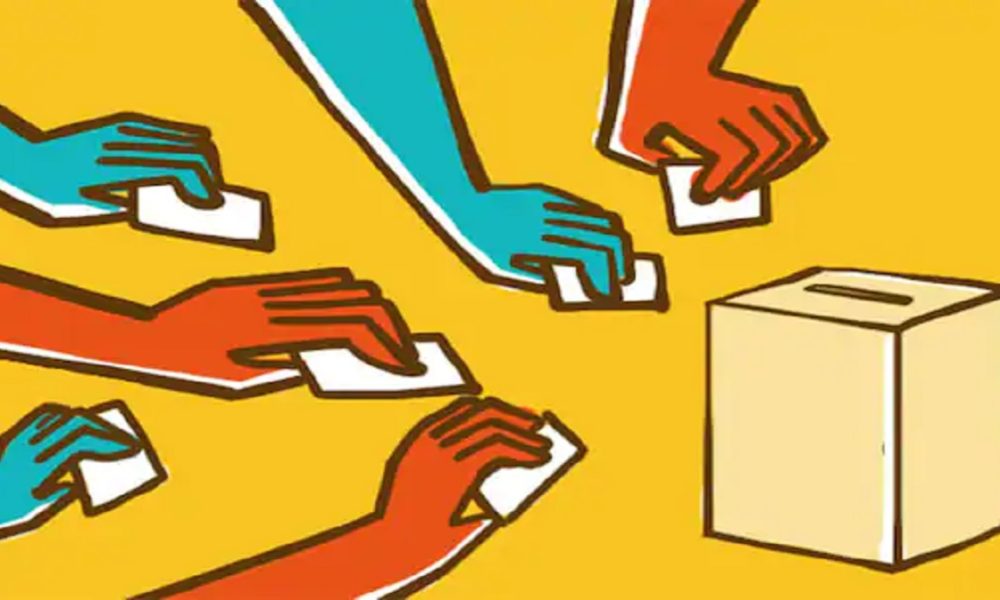Renowned actor and activist Nana Patekar’s style is unique, but when he delivers dialogues about the questions troubling common man, it leaves people simply awestruck. His style is visible in films, but this time he posed the same questions to the chief minister Eknath Shinde and deputy chief minister Devendra Fadnavis during the Lokmat Media Group’s Maharashtrian of The Year awards ceremony! He asked, do we have any value as a voter? After we have voted, what should we do if the people’s representatives fail to perform? We will do whatever we want to after five years but what to do in the meantime?
The question asked by Nana Patekar truly represents the question of every voter in this country. We have read and heard this since childhood that in a democracy, the voter is omnipotent. His one vote can decide the victory or defeat of a candidate. The representative of the voter sits in the supreme body of this country right from Parliament to the State Legislative Assembly and the Panchayat, makes policies and runs the country. Therefore, the voter is theoretically the most powerful. But the situation today is not hidden from anyone. Our founding fathers who envisioned Indian democracy would never have imagined that the voter would remain powerful only on paper, while all the sources of power would be in the hands of the leaders. Voters will remain helpless and leaders will continue to prosper! This question always troubles the common man as no one knows what a leader apparently does. But only after some time of becoming a leader, how does his fortune start smiling? His house becomes luxurious, and he starts moving in expensive vehicles! I know that not all politicians are corrupt but if such questions pop up in the mind of the common man, there is no harm in believing that there is no smoke without fire!
It’s not just about corruption! Now crime has also taken politics in its grip to a great extent. The report of the Vohra Committee in 1993 and the National Commission set up to review the working of the Constitution in 2002 clearly stated that the number of people with serious criminal backgrounds was increasing in politics. The statistics compiled later also confirm this. The report of National Election Watch Association for Democratic Reform says that in 2009, 76 people with serious criminal cases entered Parliament, while in 2019, 159 such people managed to enter the Parliament. Of course, political parties give tickets to candidates who have the potential to win, but it is the voter’s responsibility to choose the right people. Why do so many so-called ‘Bahubalis’ and criminals are elected over and over again? After all, why do good people like Naval Tata lose elections? How will the situation improve until the voters keep their distance from the electoral blandishments?
At the time of elections, politicians ask for votes with folded hands, but once they win, they start behaving like emperors. I personally know many such leaders who, even after winning elections, remain as polite and accessible to the people as before. It is because of such leaders that there is a semblance of balance in the society. But the attitude of most leaders changes. If they suspect that people of a certain area have not voted for them, they indulge in the politics of vengeance too. It is obvious that the role of the voter remains confined only to choosing the representative. The voter does not have a hold on what the people’s representative does later. If he changes the party, the voter cannot do anything. Although a law was enacted to prevent defection, we are seeing how it has failed!
In reply to Nana’s question, deputy chief minister Devendra Fadnavis said the value of the leader is because of the value of the voter. Theoretically, this is true for those leaders who practise politics for the welfare of the common man, but it is not true for those leaders who develop power in the form of private power centres! That power centre starts fragmenting the society in various forms.
So now the question is what should the voters do? Shouldn’t they have the right to call back their representatives if they so desire? This law was in vogue in the Athenian Democracy of Greece. It was also implemented in the Los Angeles, Michigan and Oregon municipalities in the early twentieth century. In 1995, the British Columbia Assembly implemented the ‘Right to Recall’. Lok Nayak Jayaprakash Narayan supported the ‘Right to Recall’ in 1974, and in 2008, the then speaker of Lok Sabha Somnath Chatterjee supported it too. The discussions continued on this even later, but no concrete solution was arrived at. Nana’s question is valid. We have to find answers or else it will continue to weaken Indian democracy. Nana has given vent to the people’s viewpoint, which is why more than 20 lakh people have seen and heard the mega interview on Lokmat’s digital platforms!
The author is the chairman, Editorial Board of Lokmat Media and former member of Rajya Sabha.







